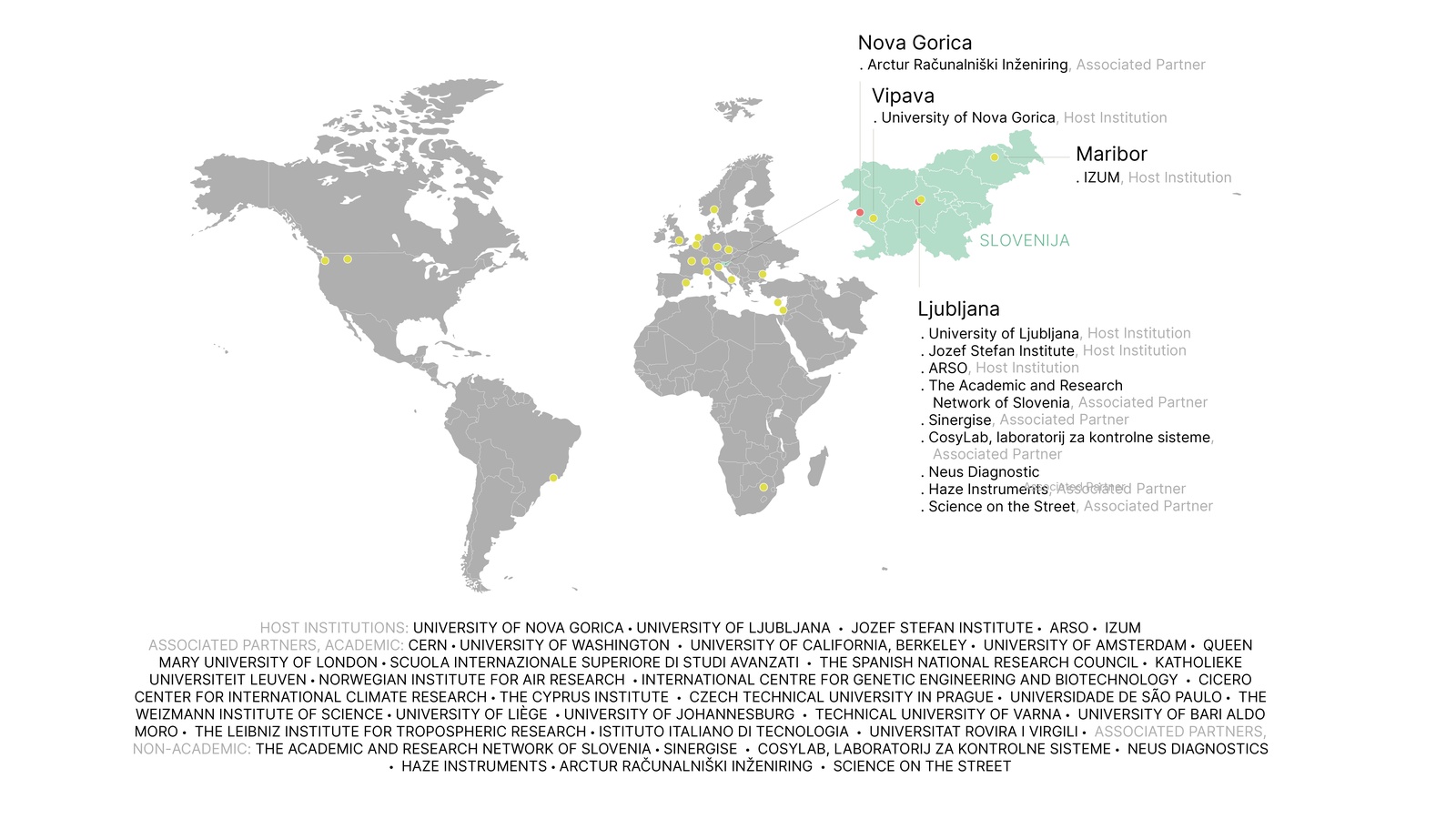SMASH is welcoming first post–doc fellows
SMASH - innovative, intersectoral, global career-development training program for 50 outstanding postdoctoral researchers, centred on developing cutting-edge machine learning and AI applications for science and humanities - is welcoming first post–doc fellows. This is an important milestone as SMASH is now entering into a research phase. SMASH is based at the University of Nova Gorica.

First SMASH Fellows are welcomed, and SMASH team based in University of Nova Gorica in Vipava is optimistic seeing the positive feedback and growing number of applications as a result of the 2nd Call for Applications, which was closed in October. At the forefront of advancing outstanding postdoctoral researchers worldwide, SMASH focuses on pioneering machine learning methods and artificial intelligence applications for both scientific and humanistic pursuits.
Bringing together five leading institutions in Slovenia — the University of Nova Gorica, the University of Ljubljana, the Jožef Stefan Institute, the Institute of Information Science (IZUM), and the Slovenian Environment Agency (ARSO) — SMASH has cultivated a network of excellence. Collaborating with 25 associated partners, including innovative Slovenian businesses and esteemed international academic institutions, SMASH stands as the first COFUND project coordinated by a Slovenian organization, the University of Nova Gorica. Funding for the project is provided through the European Horizon research and development program.
As SMASH celebrates its first year, it remains dedicated to pushing the boundaries of interdisciplinary research and creating a vibrant community of researchers committed to leveraging machine learning for scientific and humanistic advancements. Prof. Dr. Gabrijela Zaharijaš, Coordinator of the SMASH comments: “After first year of intensive work on this international post-doc program, we can proudly say that SMASH Fellows that had been selected in the 1st SMASH Call for applications are coming to work to Slovenian and that brings fresh perspectives and expertise to the program. This will be also a good start to internally empower our SMASH Project community, therefore we are starting with monthly SMASH Seminars. First one was on 14 December 2023, and represented an exciting opportunity for SMASH supervisors and Fellows to engage in discussions, fostering collaboration on diverse projects across scientific disciplines. Apart from realising our project goals, we have to announce that the recently concluded 2nd SMASH Call for applications witnessed remarkable success in terms of the number and diversity of applications received. Ongoing evaluations are in progress, with candidate selections expected to conclude at the end of January.”
Over the course of five years (2023 to 2028), SMASH will support 50 selected fellows, ensuring a minimum of 40% female representation. Fellows will embark on a 2-year journey within one of Slovenia's five leading research institutions and gain exposure through two secondments—one in Slovenia with an academic or non-academic partner and another international secondment chosen from SMASH's associate partners. Notably, at least one of these secondments will be interdisciplinary or intersectoral, highlighting SMASH's commitment to fostering diverse collaborations.
For more information about SMASH and its ongoing initiatives: Please visit SMASH Project Website.
About SMASH: SMASH is an intersectoral career development training program for postdoctoral researchers, committed to advancing cutting-edge machine learning applications for science and humanities. Developed by a consortium of top-level institutions in Slovenia, SMASH is the first COFUND project coordinated by the University of Nova Gorica and is co-financed by the European Horizon research and development program. The program focuses on five main research areas: 1.) Data Science - Machine Learning for Scientific Applications; 2.) Fundamental Physics - Machine learning for Particle Physics, Astrophysics and Cosmology; 3.) Linguistics - Computing for Human and Animal Communication; 4.) Climate – Machine Learning in Climate Research; 5.) Precision Medicine - Personalised Medicine and Life Sciences.
